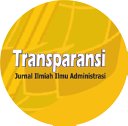Analisis Efektivitas Dapur Sehat Atasi Stunting (DASHAT) dalam Profilaksis Stunting dan Kolam Sehat dengan Pakan Maggot di Kampung Rawa Bambu Kelurahan Kalibaru Kecamatan Medan Satria Kota Bekasi
DOI:
https://doi.org/10.31334/transparansi.v8i1.3856Keywords:
Stunting, DASHAT, Healthy Pond, Maggot, Nutrition, Food Security, Bekasi, Kolam Sehat, Gizi, Ketahanan Pangan,Abstract
(Analysis of the Effectiveness of the Healthy Kitchen to Overcome Stunting (DASHAT) in Stunting Prophylaxis and Healthy Fish Pond with Maggot Feed in Kampung Rawa Bambu Kalibaru Sub-district Medan Satria District Bekasi City) Stunting is a complex public health issue that requires a multisectoral approach for its mitigation. The Healthy Kitchen to Overcome Stunting (DASHAT) program and the Healthy Fish Pond with Maggot Feed initiative are two community-based innovations implemented to enhance food security and improve community nutrition. This study aims to analyze the effectiveness of both programs in supporting stunting prophylaxis in Kampung Rawa Bambu, Kalibaru Sub-district, Medan Satria District, Bekasi City. A descriptive qualitative method was used, with data collected through in-depth interviews, participatory observation, and document analysis. The results show that the DASHAT program improved mothers’ knowledge and skills in preparing nutritious meals, while the Healthy Pond program contributed to providing an affordable and sustainable source of animal protein through the use of maggot-based fish feed. The synergy between these two programs is considered effective in encouraging positive nutritional behavior changes and strengthening local food self-sufficiency. However, challenges remain in terms of program sustainability, funding limitations, and levels of community participation. This study concludes that the integration of DASHAT and the Healthy Pond program holds great potential as a sustainable community-level strategy for stunting prevention. Abstrak Stunting merupakan permasalahan kesehatan masyarakat yang kompleks dan memerlukan pendekatan multisektoral untuk penanggulangannya. Program Dapur Sehat Atasi Stunting (DASHAT) dan Kolam Sehat dengan Pakan Maggot merupakan dua inovasi berbasis komunitas yang diimplementasikan untuk meningkatkan ketahanan pangan dan gizi masyarakat. Penelitian ini bertujuan untuk menganalisis efektivitas kedua program tersebut dalam mendukung profilaksis stunting di Kampung Rawa Bambu, Kelurahan Kalibaru, Kecamatan Medan Satria, Kota Bekasi. Metode yang digunakan adalah pendekatan kualitatif deskriptif dengan teknik pengumpulan data berupa wawancara mendalam, observasi partisipatif, dan studi dokumentasi. Hasil penelitian menunjukkan bahwa DASHAT mampu meningkatkan pengetahuan dan keterampilan ibu dalam penyajian makanan bergizi, sementara Kolam Sehat dengan pakan maggot berperan dalam penyediaan sumber protein hewani yang terjangkau dan berkelanjutan. Sinergi antara kedua program ini dinilai efektif dalam mendorong perubahan perilaku gizi keluarga dan memperkuat kemandirian pangan lokal. Meskipun demikian, tantangan masih ditemukan dalam hal keberlanjutan program, keterbatasan dana, serta tingkat partisipasi masyarakat. Penelitian ini menyimpulkan bahwa integrasi DASHAT dan Kolam Sehat memiliki potensi besar sebagai strategi profilaksis stunting yang berkelanjutan di tingkat komunitas.References
Albi Anggito dkk, 2018. Metodologi Penelitian Kualitatif, Sukabumi CV Jejak. Amtai Alaslan 2022.
Metode Penelitian Kualitatif, Depok skripsi Halaman 27
Beni Pekei, 2020. Manajemen Efektifitas Manajemen Pengelolaan Aset Daerah di era Otonomi, Jakarta 2019
Endang Achadi, 2020. Pencegahan Stunting: pentingnya peran 1000 hari pertama, FKM UI. Moleong,
Metodologi Penelitian Kualitatif, Bandung Remaja Rosdakarya.
Prasanti Adriani dkk, 2022. Stunting pada anak, Padang PT Global Eksekutif
Dr. Saifuddin Yunus dkk, 2017. Pemberdayaan Masyarakat Terpadu, Aceh Bandar Publishing.
Sondang P Siagian, 2019. Teori pengembangan organisasi, Jakarta Bumi Aksara.
Sugiyono 2019. Metode Penelitian Kuantitatif, Kualitatif dan R&D, Bandung Alfabeta. Syamsul
Bahry dkk, 2014. Metode Penelitian Kuantitatif Berbasis Sem-Amos. Yogyakarta.
Badan Kependudukan dan Keluarga Berencana Nasional. (2015). Rencana Strategis Badan Kependudukan dan Keluarga Berencana Nasional Tahun 2015 – 2019. Jakarta: BKKBN.
Kementerian Kesehatan Republik Indonesia. (2018). Situasi Balita Pendek (Stunting) di Indonesia. Buletin Jendela Duta dan Informasi Kesehatan. ISSN 2088 - 270 X. Jakarta: Kemenkes RI.
Peraturan Presiden Republik Indonesia Nomor 72 Tahun 2021 Tentang Percepatan Penurunan Stunting.
Badan Pusat Statistik. (2021). Statistik Stunting Indonesia 2021. Badan Pusat Statistik.
Fadila, N. M., & Harahap, R. (2020). Pakan maggot sebagai solusi penyediaan sumber protein hewani untuk pencegahan stunting. Jurnal Teknologi Pangan, 12(4), 110-118. https://doi.org/10.1234/jtp.2020.098123
Suryani, M. (2021, September 5). Kampung Rawa Bambu: Solusi Gizi Berkelanjutan untuk Masyarakat. Kompas. https://www.kompas.com/solution-gizi-rawabambu
Sari, A. D., & Mulyani, Y. (2020). Efektivitas program Dapur Sehat Atasi Stunting (DASHAT) dalam peningkatan gizi keluarga. Jurnal Gizi Masyarakat, 25(3), 45-53. https://doi.org/10.1234/jgm.2020.091234
Wahyuni, S. R., & Sari, P. A. (2019). The effectiveness of maggot-based feeding systems in sustainable livestock farming. Journal of Animal Science, 18(2), 234-241. https://doi.org/10.1234/jas.2019.015234
Downloads
Additional Files
- Analysis of the Effectiveness of the Healthy Kitchen to Overcome Stunting (DASHAT) in Stunting Prophylaxis and Healthy Fish Pond with Maggot Feed in Kampung Rawa Bambu Kalibaru Sub-district Medan Satria District Bekasi City
- Analysis of the Effectiveness of the Healthy Kitchen to Overcome Stunting (DASHAT) in Stunting Prophylaxis and Healthy Fish Pond with Maggot Feed in Kampung Rawa Bambu Kalibaru Sub-district Medan Satria District Bekasi
Published
Issue
Section
License

This work is licensed under a Creative Commons Attribution-ShareAlike 4.0 International License
Please find the rights and licenses in Transparansi : Jurnal Ilmiah Ilmu Administrasi By submitting the article/manuscript of the article, the author(s) agree with this policy. No specific document sign-off is required.
- License
The commercial use of the article will be governed by the Creative Commons Attribution license as currently displayed on Creative Commons Attribution-ShareAlike 4.0 International License.
2. Author(s)' Warranties
The author warrants that the article is original, written by stated author(s), has not been published before, contains no unlawful statements, does not infringe the rights of others, is subject to copyright that is vested exclusively in the author and free of any third party rights, and that any necessary written permissions to quote from other sources have been obtained by the author(s).
3. User Rights
Transparansi : Jurnal Ilmiah Ilmu Administrasi spirit is to disseminate articles published are as free as possible. Under the Creative Commons license, Transparansi : Jurnal Ilmiah Ilmu Administrasi permits users to copy, distribute, display, and perform the work for non-commercial purposes only. Users will also need to attribute authors and Transparansi : Jurnal Ilmiah Ilmu Administrasi on distributing works in the journal and other media of publications.
4. Co-Authorship
If the article was jointly prepared by more than one author, any authors submitting the manuscript warrants that he/she has been authorized by all co-authors to be agreed on this copyright and license notice (agreement) on their behalf, and agrees to inform his/her co-authors of the terms of this policy. Transparansi : Jurnal Ilmiah Ilmu Administrasi will not be held liable for anything that may arise due to the author(s) internal dispute. Transparansi : Jurnal Ilmiah Ilmu Administrasi will only communicate with the corresponding author.
5. Miscellaneous
Transparansi : Jurnal Ilmiah Ilmu Administrasi will publish the article (or have it published) in the journal if the article’s editorial process is successfully completed. Transparansi : Jurnal Ilmiah Ilmu Administrasi editors may modify the article to a style of punctuation, spelling, capitalization, referencing and usage that deems appropriate. The author acknowledges that the article may be published so that it will be publicly accessible and such access will be free of charge for the readers as mentioned in point 3.
Every accepted manuscript should be accompanied by "Copyright Transfer Agreement"prior to the article publication.











